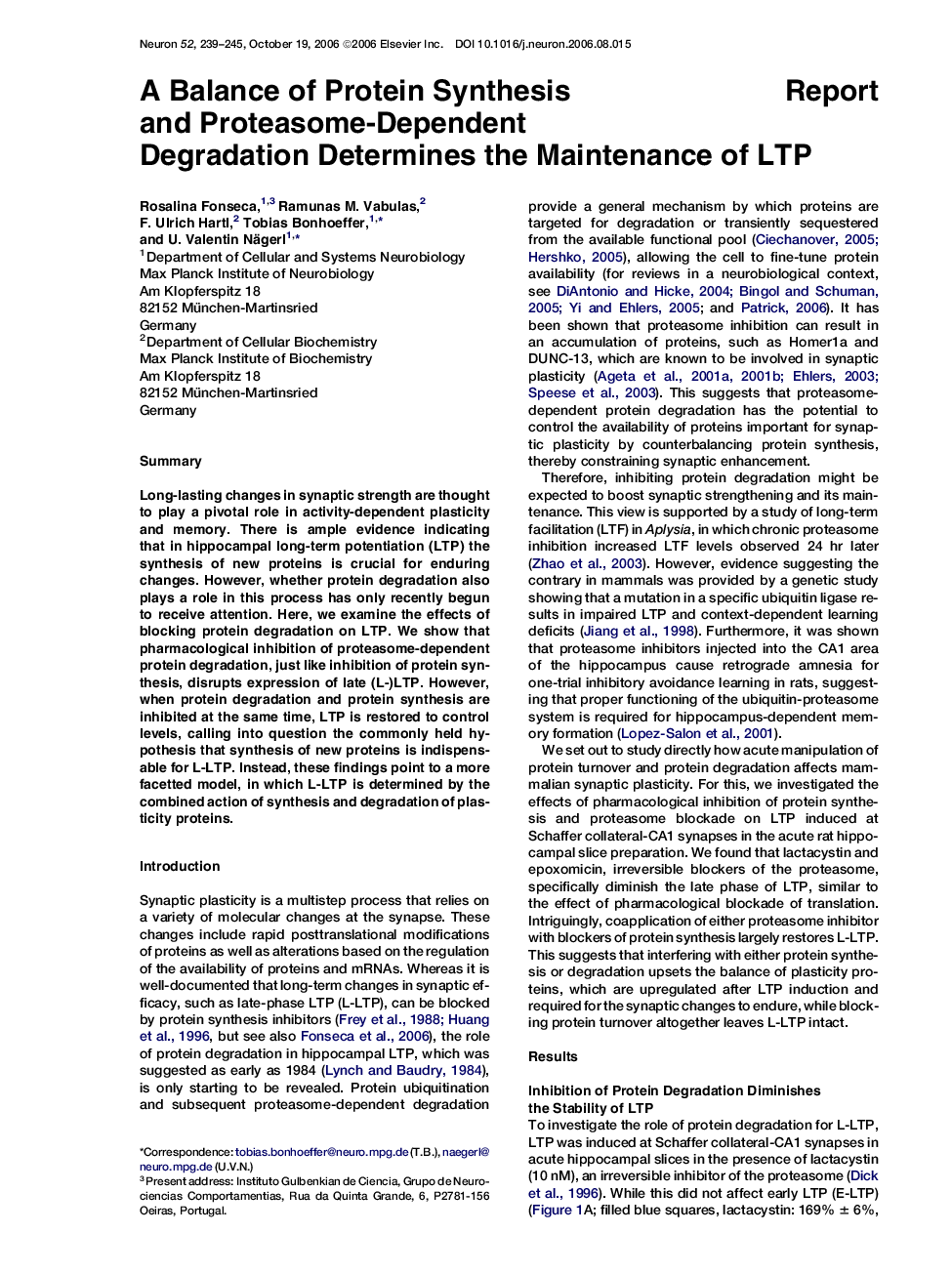| Article ID | Journal | Published Year | Pages | File Type |
|---|---|---|---|---|
| 4322880 | Neuron | 2006 | 7 Pages |
SummaryLong-lasting changes in synaptic strength are thought to play a pivotal role in activity-dependent plasticity and memory. There is ample evidence indicating that in hippocampal long-term potentiation (LTP) the synthesis of new proteins is crucial for enduring changes. However, whether protein degradation also plays a role in this process has only recently begun to receive attention. Here, we examine the effects of blocking protein degradation on LTP. We show that pharmacological inhibition of proteasome-dependent protein degradation, just like inhibition of protein synthesis, disrupts expression of late (L-)LTP. However, when protein degradation and protein synthesis are inhibited at the same time, LTP is restored to control levels, calling into question the commonly held hypothesis that synthesis of new proteins is indispensable for L-LTP. Instead, these findings point to a more facetted model, in which L-LTP is determined by the combined action of synthesis and degradation of plasticity proteins.
